Good Hygiene Practices in the Workplace
Sep 20 2016
Darren Best
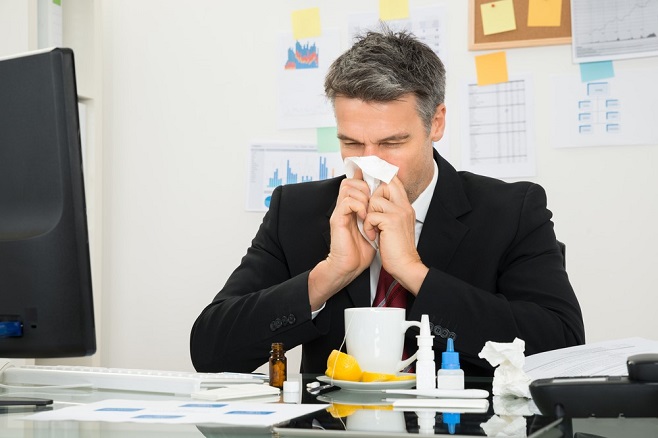
So what are some of the most effective bacteria-fighting practices when working in an office?
Eat away from the desk
According to cleaningservicesgroup.co.uk, ‘one in five office workers won’t clean their desk before eating there’, and, ‘only 3% of office equipment is cleaned sufficiently’, it’s no wonder that cough, colds and other viruses spread like wildfire in an office environment. Employees should eat in a designated area, away from their desks to minimise crumbs falling between the keys of the keyboard. Crumbs lodged in computer equipment accelerate the growth of harmful bacteria. This is quickly transferred to employees when touching office equipment whilst eating.

Image: Credit to Monkey Business Images / shutterstock.com
Change communal dish cloths regularly
Sponges soak up far more than fresh, running water. Food waste gradually expires and acquires bacteria. The moist nature of a sponge is also an ideal environment for bacteria to multiply. Sponges can be washed in a washing machine to help to reverse this process however, generally speaking, a sponge or dish cloth should be replaced monthly, and should be soaked in a solution of mild bleach and water at the end of each working day.
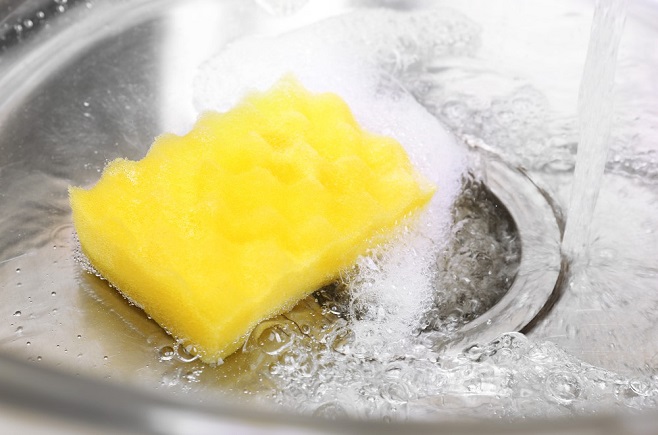
Image: Credit to Africa Studio / shutterstock.com
Wash tea-towels regularly
A study by the University of Arizona found that 89% of kitchen tea-towels tested positive for coliform bacteria (present in faeces, which can cause food poisoning or diarrhoea), and 25.6% tested positive for E. coli.
Researcher, Kelly Reynolds, from the University of Arizona, recommends that the minimum amount of times home tea towels should be washed is weekly, in an antibacterial wash.
Office tea-towels are likely to harbour more bacteria as they are likely to be used by more people. It is therefore advisable that you wash them twice weekly.
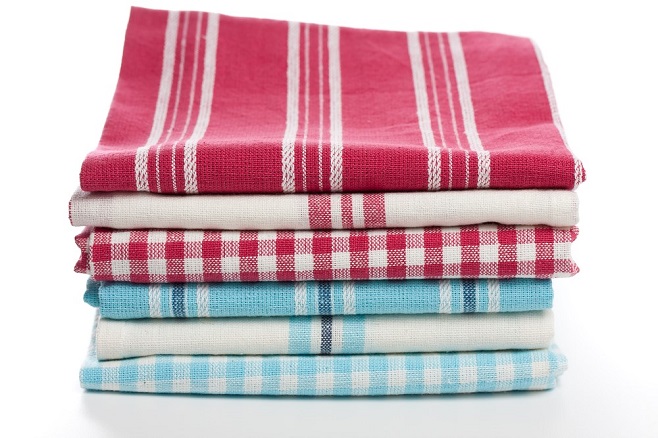
Image: Credit to Melica / shutterstock.com
Provide paper hand towels over actual towels in the bathroom
Bathroom hand-towels similarly harbour a vast amount of bacteria. This goes double for offices where multiple people may be using the same towels, causing them to become saturated and moist – an ideal breeding ground for harmful bacteria. Providing paper hand towels greatly reduces the spreading of harmful bacteria as there is less of a chance of the bacteria being passed from person-to-person.
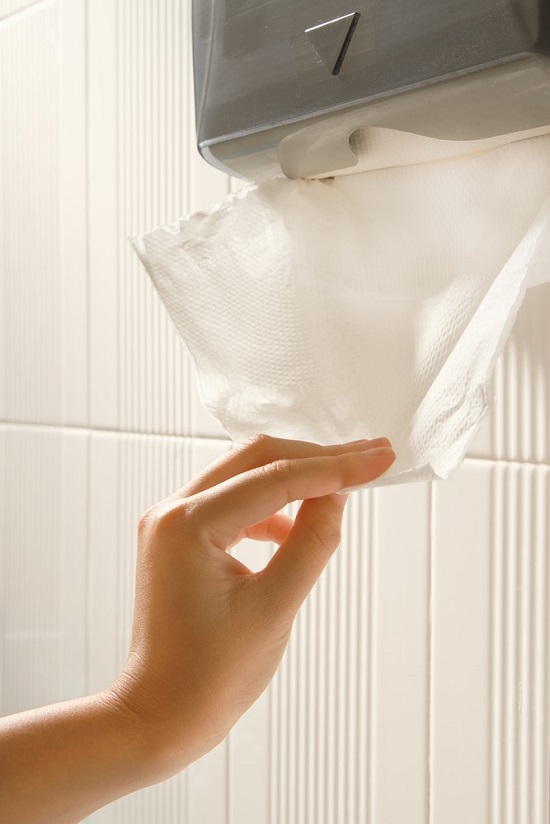
Image: Credit to Praisaeng / shutterstock.com
Provide anti-bacterial hand-gel
In larger offices, or in medical buildings especially; anti-bacterial hand-gel dispensers in corridors may aid in the reduction of harmful bacteria being spread. Although this practice should not substitute normal hand-washing; it may be useful for visitors to the building. Often, temporary visitors to a building do not go out of their way to stop at the bathroom to wash their hands. Those delivering a parcel or visiting a patient are more likely to make use of hand-gel dispensers in corridors. Harmful bacteria, is typically transferred when touching pens, door handles and light-switches; antibacterial gel will help to guard against this happening.
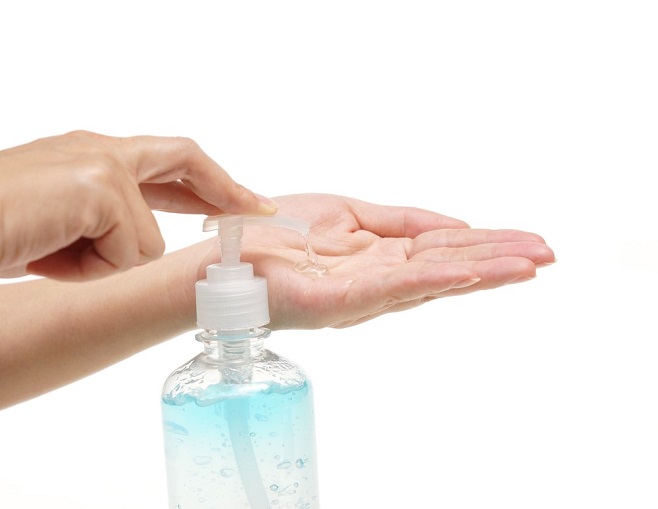
Image: Credit to wk1003mike / shutterstock.com
Mandatory Hygiene Signs
Workplace mandatory hygiene signs have been proven to have shown an increase in employee hygiene standards. These signs should be placed in clear view of workers preparing food in the kitchens, and for those taking a bathroom break in the toilets. Different styles are available, including those that display the most effective hand-washing regimes.
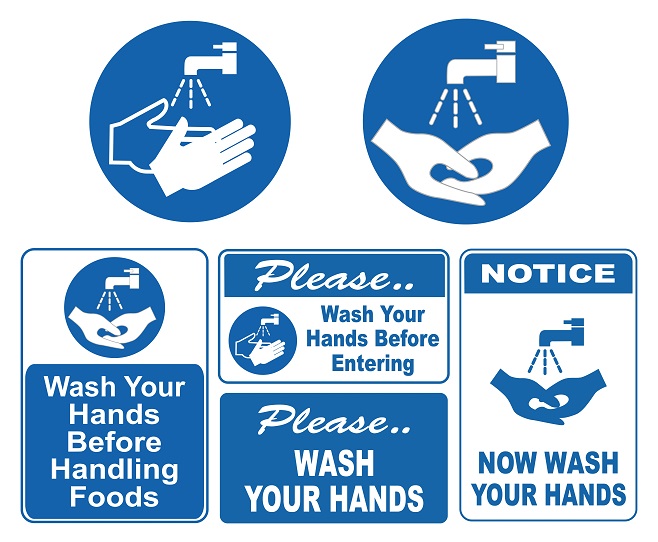
Image: Credit to Cool Vector Maker / shutterstock.com
Anti-bacterial spray for kitchen work-surfaces
Providing anti-bacterial spray in the kitchen, will allow employees who have caused spillages to effectively clean up afterwards. The sink area and any eating stations can be sanitised between uses, ready for the next employee.
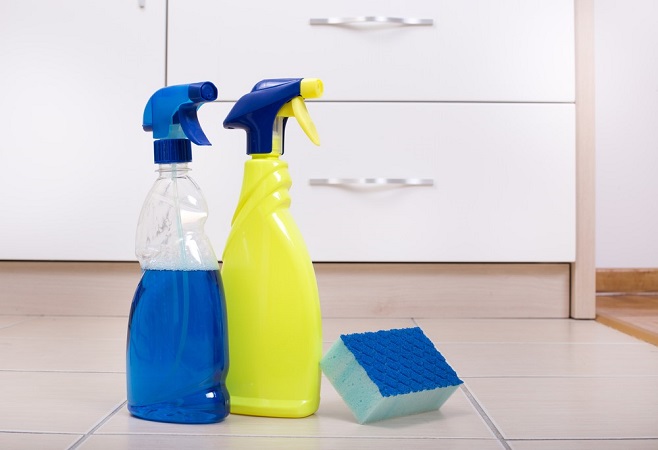
Image: Credit to Budimir Jevtic / shutterstock.com
Anti-bacterial desk wipes
Research by the University of Arizona found that the average office desktop harboured 400 times more bacteria than the average office toilet seat. And a study by the University of Arizona found that, phone have approximately 25,127 microbes per square inch! Providing workers with anti-bacterial wipes will aid in the reduction of potentially harmful bacteria forming on office equipment.
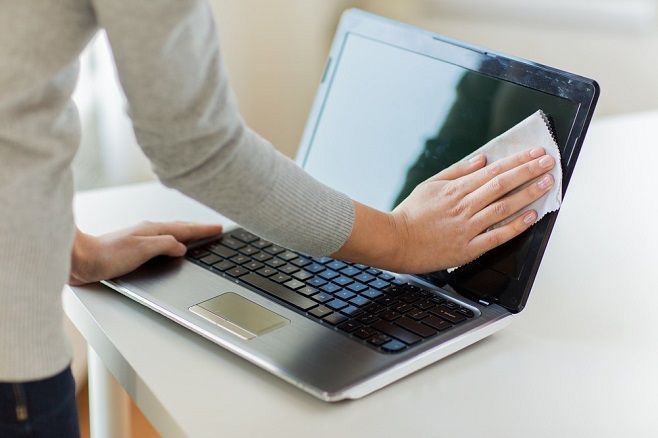
Image: Credit to Syda Productions / shutterstock.com
Feature Image: Credit to Andrey_Popov / shutterstock.com